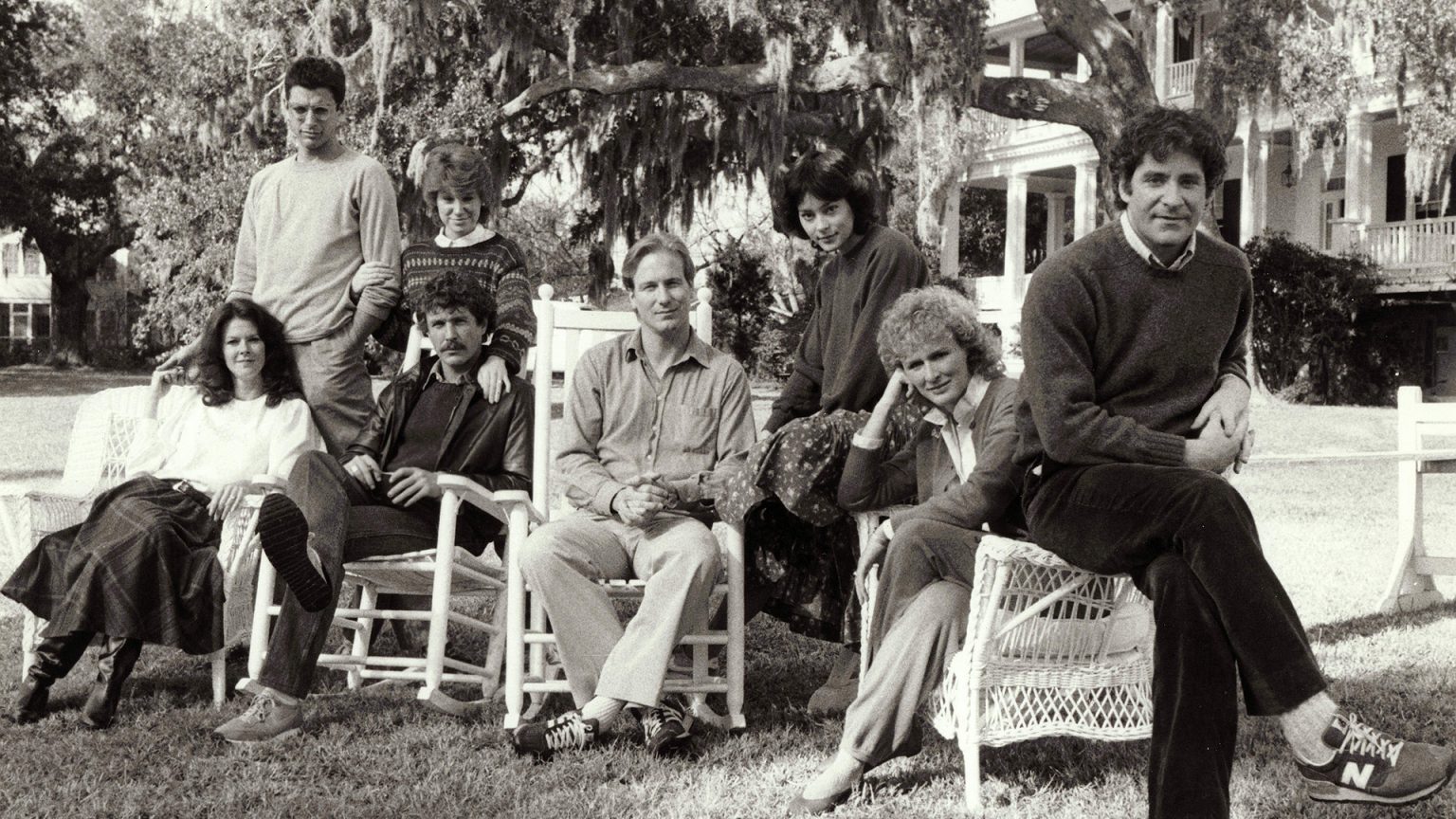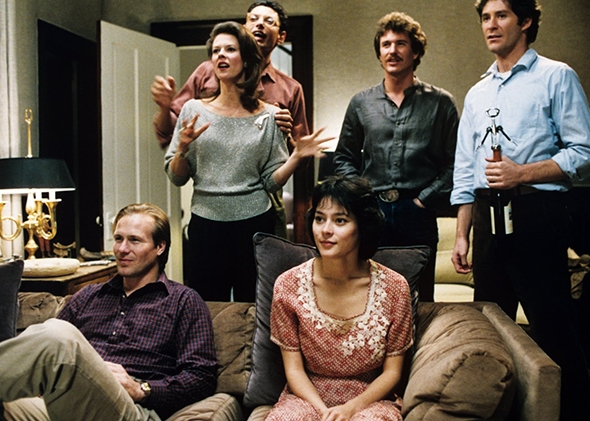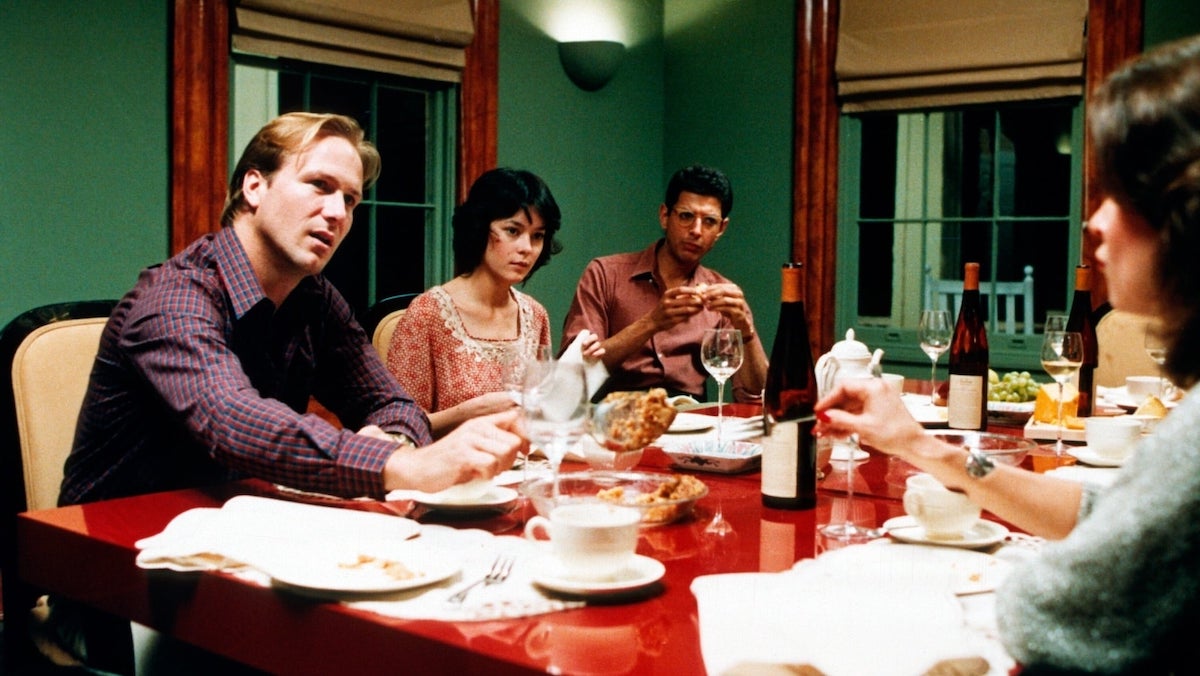The film The Big Chill came out a bit before I was born, over 40 years ago, in 1983. The plot focuses on a group of middle-aged friends, perhaps in their late 30s and early 40s, who had attended the University of Michigan – Ann Arbor together. They reunite after 15 years, brought together by the tragedy and the funeral of their friend, Alex, who, we learn in the film’s opening, died by suicide.
The “big chill” of the title can be interpreted a few different ways. The numbing loss of the innocence of youth. The cold realization of the quotidian nature of adulthood. Or, the wintry blast of mortality, which comes as a shock to this group of old college friends, who had become used to a sort of humdrum comfortable existence, pursuing families and careers, and then being suddenly shaken out of it by the sad news of their old friend Alex’s passing.

There is a historical and generational aspect to the film, too. The college years, for this group, were the 1960s. A time of great idealism in the US. The counter-culture was the culture. They weren’t supposed to end up like their parents. But then they found themselves in the 1980s, yuppies of exactly the sort they feared they’d become.
One of the interesting aspects of watching this film today is that, being set in the 1980s, it lacks altogether the technopoly we see in our current lives in the 2020s. There are no smartphones nor social media, to be sure, but, what’s more, there is no computing or internet either.
The defining technologies featured in the film? The car — how all the friends arrive in South Carolina for the funeral — and the television, around which two of the friends’ lives revolve. One is a well-known television actor, and the other is a writer for People magazine, which was well-known for profiling TV celebrities. However, the film develops almost entirely via human one-on-one or group dialog. There might be a scene in front of a television, but it’s a conversation around it, as though around a campfire.

Likewise, several important conversations happen in the intimate settings of a group dinner at a dining table, a breakfast in the kitchen, or lounging around listening to music in a living room.
Basically, what ran through my mind while watching this movie and its storyline develop is that this was the real social media. A bunch of humans, seeking connection with one another, through direct, and private, conversation.
Though I enjoyed The Big Chill, for me, the core sadness at the heart of the movie got overshadowed by an internal lament I felt for an era without smartphones and the “trick mirror” of a highly-online social media, which has also become frigidly atomized and darkly algorithmic in nature.
I grew up a loner. So when I discovered the internet, it felt like a warm glow. It was a way for me to connect with people through reading and writing. At a young age, I struggled to connect with people the “old-fashioned way,” whether that was around a campfire or television — or in a school lunch cafeteria, or at a college party. The internet has always been my way to find a digital connection in my personal comfort zone: through written words.
As I grew up, though, I learned to find that connection in real life.
Thinking back, I wonder: for whom, exactly, was I writing on my blog? With the clarity of hindsight, I believe it was always an audience of zero. I was really writing for myself. I was using writing as a way of thinking. That this happened in public was almost an accident. As Leslie Lamport once said, “If you’re thinking without writing, you only think you’re thinking.” Publishing freely on the internet just created an external incentive (wide readership) out of a practice that already had an internal purpose for me (that is: thought formulation).
Over time, my online writing fractured. It wasn’t just on my blog, but associated with a number of online identities, and thus, without realizing it, I was developing a digital doppelgänger. I was no longer just “Andrew,” a person with a certain brain, body, and worldview. I was now @amontalenti, a digital avatar with “public views,” loosely connected to Andrew’s live brain and body.
I was growing up, but so was the internet. In its old age, the internet was losing its idealistic streak, and becoming the humdrum center of our quotidian concerns — not just speech and connection and ideas, but also online shopping and video streaming and data backup and photo sharing and whatever else. We were now being watched over by machines of loving grace.
As I grew up, I re-evaluated my relationship with the internet. I think many of those in my age cohort did, too. We started to fear mob effects on Facebook, Twitter/X, and elsewhere. Many fewer of us ran our own websites or blogs. Many of us left the 1% of creators and fled to the safety of the 99% of lurkers.
The Big Chill is about some young strivers growing up and finding everyday life in the 1980s more compromised than the ideals they established during their 1960s youth. They also find themselves more alone and less connected in adulthood. And they are only honest with themselves about this in the private setting created by their hanging out, face-to-face, in close quarters.
It’s in this way I see that there is a “big chill” in blogging today. The internet grew up beyond its idealism. But also, the more “public” internet (of blogging and public posting) is somehow less honest than the “private” one (of group threads and private messages).
Very few truly independent people publish truly independent essays anymore. We have a fantasy of online publishing happening in a decentralized way, without fear or favor. But most of today’s online writing is driven by a perverse tapestry of economic and notoriety incentives. Very many of those are negative incentives, creating not just indifference toward independent essay writing, but also a chilling effect over the whole of non-institutional internet publishing and free expression.
What’s more, publishing essays on a decentralized platform (like this site you’re now reading) has become a privilege. Not in the same way that it was in the 1990s or early 2000s, where the privilege was knowing how to do it, technically. How to run a web server, how to set up a blog. No, the privilege now is different. It’s to have the tenacity to run your own web server, and not rent someone else’s. To self-host your own essays, and not publish them directly to another platform. It has costs, in both time and money. You have to take extra care in order to self-publish. Even just believing in the power of written words — crafted, formulated, considered — is increasingly rare! The default mode, the easy button, is to tap “record” and pump your ideas and views — raw, instinctive, reactionary — into an engagement swirl of algorithmically curated and recommended videos. It takes effort, not only to avoid amusing yourself to death, but also to avoid becoming part of the circus.
There’s a reason I have only published one other essay in 2023. Despite having the time and inclination to publish more, I feel a chill coming over my desire to write and publish freely on the internet. I don’t think it has to do with my age. I think it has to do, instead, with a kind of chilling effect over the whole internet.
I have more ideas now than when I was younger. I have more free time to think clearly and independently about those ideas. And, to be honest, I write more frequently now than I did then. I have more practice crafting, editing, and publishing an essay. But my essays stay in a private folder on my computer. They linger there, unpublished. This forces my bravest writing into a safe space of having an audience of zero.
Maybe the simple solution is to return to a focus on neutral technical topics that don’t suffer from the same concerns. But that is a limited slice of my writing interests.
I’ve determined that my blogging frequency has declined because I feel more inhibited in my ability to publish online freely. This extends to my entire digital footprint, as I also post much less often on social networks.
I’ve come to realize my connections with my friends and family exist firmly in the real world. Online writing can endanger those, while earning me scant new connections. Is the cost of publishing publicly worth it? When I was younger, it was not a calculation that entered my mind at all. But now, this is an internal debate every time I feel like blogging.

Wise up, folks. We’re all alone out there.
And tomorrow we’re going out there again.
–Nick, The Big Chill (1983), played by William Hurt (1950-2022)
I don’t know where to go from here, but it’s a thought that has been seeking warmth and shelter in the back of my mind for quite awhile.
Acknowledgements: Thank you to Dan, Rom, and Sachin for reviewing a draft of this essay.
A new focus on technical posts? Some examples of my technical posts from the last few years can be found below. Maybe focusing on these sorts of topics can warm me up from the chill.
- On Python packaging and tooling
- On babashka (bb), a Clojure scripting tool
- On how JavaScript evolved
- On how a famous functional programming book, SICP, expanded my mind
- On 3 great Python programming books
- On comparing Clojure and Python
- On how to rapidly develop Python web apps
Update from a month later: I managed to write a couple of posts that warmed me up from the chill, one technical (on Python) and one non-technical (on media diets).

One thought on “The Blog Chill”